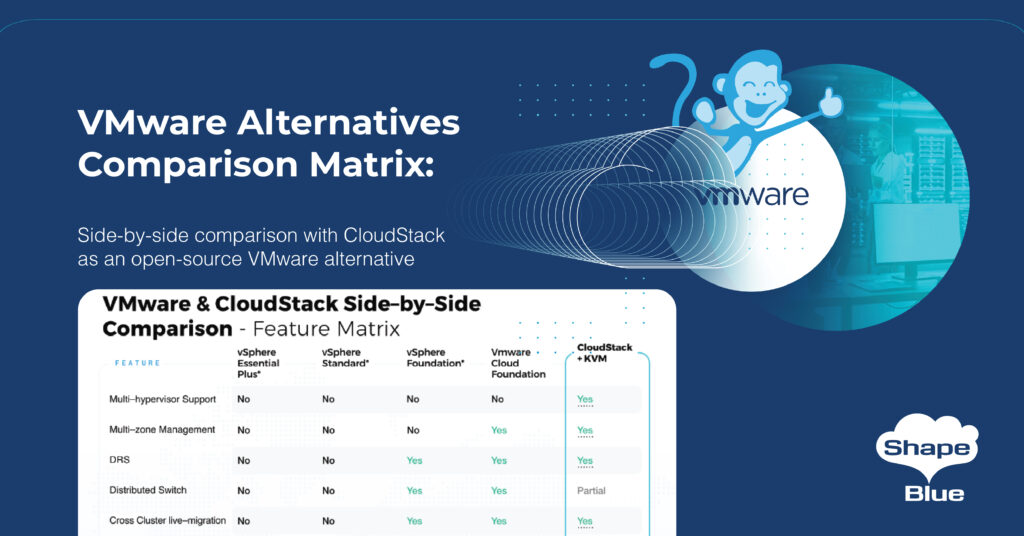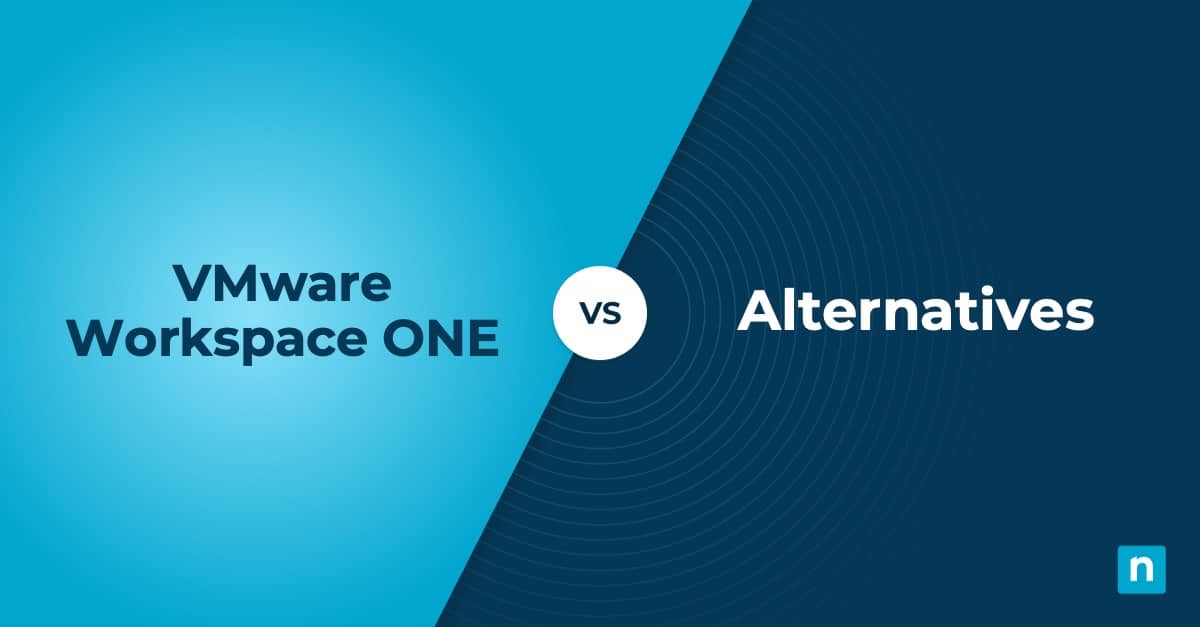VMware Alternatives & Competitors: Find The Best Fit Now!
In the dynamic realm of cloud computing and enterprise infrastructure, who truly reigns supreme in the virtualization arena? The answer, while complex, ultimately highlights the evolving competitive landscape where VMware, once the undisputed leader, now faces a formidable challenge from a multitude of innovative contenders.
The virtualization market, a cornerstone of modern IT infrastructure, has witnessed a significant shift in recent years. While VMware, with its robust suite of products, has long held a dominant position, the recent acquisition by Broadcom has spurred a wave of introspection among enterprise teams. Many are reevaluating their virtualization strategies, seeking solutions that offer not only performance and reliability but also cost-effectiveness and seamless integration with their existing IT ecosystems. This shift is fueled by several factors, including the desire for greater flexibility, cost savings, and the availability of innovative features offered by VMware's competitors.
VMware's competitive landscape is characterized by a diverse array of players, each vying for a share of the burgeoning virtualization market. Some of the most prominent competitors include Microsoft, Citrix, Red Hat, Amazon, and Nutanix. Each of these companies offers a suite of virtualization solutions, catering to a wide range of needs and budgets. It's crucial to understand the strengths and weaknesses of each competitor to determine which solution best fits an organization's unique requirements. For instance, Microsoft Azure Virtual Machines integrates seamlessly with the Microsoft ecosystem, while Google Cloud's Compute Engine offers scalable infrastructure.
- Ahad Raza Mir Drama Return Rumors More Latest Updates
- Ddr Movies More Explore German Film East German History
Here is a detailed overview of the key players in the VMware competitive landscape:
| Company | Description | Strengths | Weaknesses | Market Share (Approximate) |
|---|---|---|---|---|
| Microsoft | A global technology giant offering a range of virtualization solutions, including Azure Virtual Machines. | Deep integration with the Microsoft ecosystem, extensive features, and global reach. | Can be complex to manage, potentially higher cost for some configurations. | Significant and growing |
| Citrix | Provides a comprehensive suite of virtualization and application delivery solutions, including Citrix Workspace App. | Focus on application delivery and virtual desktop infrastructure (VDI), strong security features. | Can be expensive, some integration challenges. | 15.70% (Workspace App) |
| Red Hat | Offers a portfolio of open-source virtualization solutions, including Red Hat Virtualization. | Open-source flexibility, strong community support, cost-effective. | Can require specialized expertise, may lack some of the advanced features of commercial solutions. | Growing |
| Amazon | Provides a range of cloud computing services, including Amazon EC2, which offers virtualization capabilities. | Scalability, cost-effectiveness, broad range of services. | Vendor lock-in concerns, can be complex to manage. | Significant and growing |
| Nutanix | A leading provider of hyperconverged infrastructure (HCI) solutions, including Nutanix AHV. | Simplified management, strong performance, growing market share. | Can be more expensive than some open-source options. | Growing |
| Google Cloud | Provides a range of cloud computing services, including Compute Engine. | Scalability, performance, innovation | Vendor lock-in concerns, complex pricing model. | Growing |
The competitive dynamics within the virtualization market are constantly evolving. The recent acquisition of VMware by Broadcom has introduced uncertainty and prompted many enterprises to reassess their virtualization strategies. This has opened the door for competitors to gain traction, offering alternative solutions that can better align with evolving business needs. Companies like Microsoft are capitalizing on this shift, providing compelling virtualization options that integrate seamlessly with their existing enterprise environments.
Beyond the major players, a host of smaller vendors and niche providers are also vying for a piece of the virtualization pie. These companies often focus on specific areas of expertise, such as cloud management, data center networking, or cloud management tooling. These specialized solutions can provide significant value for organizations with particular needs. Former VMware staff members, as reported, have noted the aggressive tactics of cloud competitors attempting to "steal the company's business" in the wake of the Broadcom buyout. Dell's recent termination of its deal with VMware further underscores this shifting landscape.
When evaluating VMware alternatives, a comprehensive understanding of the available options is essential. Consider the following factors:
- Integration: How well does the alternative integrate with your existing IT infrastructure, including operating systems, applications, and hardware?
- Features: Does the alternative offer the features and capabilities you require, such as virtual machine management, storage management, and networking?
- Performance: Does the alternative provide the performance your workloads demand, including speed, scalability, and reliability?
- Cost: What are the total costs associated with the alternative, including software licensing, hardware, and ongoing maintenance?
- Support: Does the alternative offer the level of support you need, including documentation, training, and technical assistance?
- Security: Does the alternative provide the security features you require to protect your data and applications?
Several other competitors offer alternatives to the traditional VMware model. Nutanix AHV, for example, is built on its Acropolis virtualization stack and Prism control plane. This allows businesses to deploy a hyperconverged infrastructure with ease. Organizations that have already invested in Microsoft's ecosystem may find Azure Virtual Machines to be an attractive option. Cloud providers such as Amazon Web Services (AWS) and Google Cloud Platform (GCP) offer a wide array of virtualization options and services.
As organizations navigate the increasingly complex world of virtualization, the quest for reliable and cost-effective alternatives to VMware continues. It is important to remember that the "best" alternative will vary depending on your specific needs and requirements. Researching and comparing different options is crucial before making a decision.
Key Considerations for Choosing a VMware Alternative
- Business Needs: Clearly define your virtualization requirements, including the number of virtual machines, performance needs, and budget constraints.
- Existing Infrastructure: Assess your current IT infrastructure and identify any compatibility issues or integration challenges.
- Scalability: Choose a solution that can easily scale to accommodate future growth.
- Management: Evaluate the ease of management and the availability of automation tools.
- Security: Prioritize security features to protect your virtualized environment from threats.
- Cost Analysis: Conduct a thorough cost analysis, considering both upfront and ongoing costs.
- Vendor Reputation: Research the vendor's reputation and customer reviews.
The market is filled with a range of options, each with distinct advantages and disadvantages. The top competitors and alternatives of VMware are continually innovating, striving to provide superior solutions that meet the ever-evolving needs of modern businesses. Choosing the right solution is a complex decision that warrants careful consideration and in-depth research.
The virtualization landscape is in constant flux. Technology is continuously advancing and market dynamics are shifting. By staying informed about the latest trends and developments, organizations can make informed decisions, ensuring they select the optimal virtualization solution for their needs.
The following are additional competitors and their strengths:
- Ingram Micro: Provides IT solutions, including cloud computing and virtualization offerings, with a strong focus on distribution and channel partners.
- F5: Primarily known for application delivery and security solutions, F5 also offers virtualized solutions that can be integrated with various cloud platforms.
- Morpheus Data: Specializes in cloud management and automation, offering a platform for managing infrastructure, including VMware and other virtualization technologies.
- Lumen Technologies: A telecommunications company that provides a range of services, including cloud and virtualization, primarily for enterprise clients.
- Cisco Systems: A major player in networking, offering virtualized networking solutions and integrated infrastructure.
- Veeam Software: Focuses on data protection and disaster recovery for virtualized environments.
- Unisys: Provides IT services and solutions, including virtualization and cloud services for large enterprises.
Several factors influence this ongoing competition:
- Cost optimization: Businesses are constantly seeking ways to reduce IT expenses, and virtualization offers a way to consolidate hardware and reduce operational costs. Competitors often attract customers with more attractive pricing models.
- Cloud adoption: The move towards cloud computing is accelerating. Virtualization is a key enabler of cloud services, and as businesses migrate their workloads to the cloud, the demand for virtualization solutions increases.
- Simplified Management: Modern IT environments demand user-friendly management tools and automation capabilities. Competitors are investing heavily in providing easy-to-use platforms.
- Security demands: The increasing prevalence of cyber threats has increased the importance of security. Virtualization platforms are increasingly built with strong security features, and security is a key differentiator in the competitive landscape.
Ultimately, the choice of the best VMware alternative depends on an organization's specific requirements. Organizations should carefully evaluate their needs and compare the various solutions to make an informed decision. The market is dynamic, with new products and features constantly emerging. By actively monitoring the landscape and taking advantage of the latest advances, organizations can take steps to improve their IT infrastructure and achieve their business objectives.

VMware Competitors Comparably

Apache CloudStack vs. Nutanix as VMware Alternatives for Virtualisation

VMware Workspace ONE Alternatives & Competitors NinjaOne